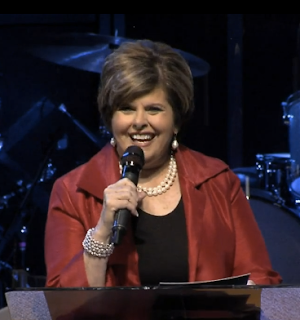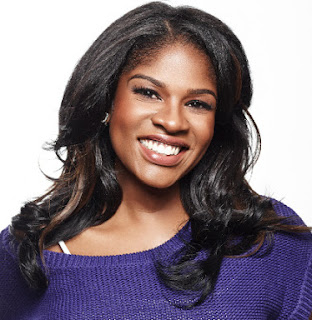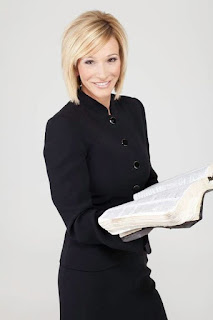“Create a fire in you to fight injustice”: How some Christian theocrats co-opt liberatory themes – Matthew N. Lyons [3WF]
 |
| Cindy Jacobs, one of NAR’s top leaders, wants to “put steel in [women’s] backbone” |
[This essay originally appeared on Three Way Fight: An Insurgent Blog On the Struggle Against the State and Fascism on September 26, 2021.]
New Apostolic Reformers advocate Christian dominance through spiritual warfare, yet some of them also call for empowering women and combating racism.
Charismatics seeking dominion over society
The New Apostolic Reformation (NAR) is a powerful movement within the Christian right and a leading force for turning the United States into a theocracy. Theologically, NAR is a branch of evangelical Christianity and more specifically the Pentecostal and Charismatic movement, which claims that modern Christians can practice miracles such as faith healing and divine prophecy. Politically, NAR promotes dominionism, the belief that Christians need to “take dominion” over society—in other words, impose their version of biblical law on the rest of us.New Apostolic Reformation organizations promote many standard Christian right themes, such as denouncing same-sex marriage, rejecting abortion rights, vilifying transgender people, and advocating school prayer. The movement’s goals go far beyond specific issues. A distinctive NAR phrase is the call to “reclaim the seven mountains,” meaning seven key areas of society (government, media, family, business, education, religion, and arts/entertainment); thus some critics refer to the movement as “Seven Mountains Dominionism.” This means that NAR doesn’t just want to pass some reactionary laws—it wants to impose a comprehensive transformation of all major institutions and cultural spheres. It regards those who oppose its aims as not just misguided but as agents of Satan.
NAR promotes “strategic-level spiritual warfare” to cast out demons who supposedly rule over whole territories, institutions, or groups of people. Prayer and worship are seen as key weapons in this struggle; one tactic used is “prayerwalking,” in which a team of people walks through a neighborhood or city and battles the evil spirit controlling it. And some NAR leaders have declared openly that they envision a coming revolution or civil war that will propel their side to victory.
NAR crystallized in the mid 1990s and has grown rapidly both in North America and in Africa, Asia, and Latin America. Leaders of NAR are called “apostles” and “prophets,” and the movement is organized as an overlapping set of ministerial networks, which in turn are joined through coordinating bodies such as the Apostolic Council of Prophetic Elders. It’s hard to know just how big the movement is, but by one 2013 estimate some 3 million people attend NAR-affiliated churches in the United States alone, and millions more in other countries.
Despite its size and authoritarian politics, New Apostolic Reformation has received little or no attention from most anti-fascist organizations and websites. Fortunately, over the past decade Political Research Associates and the online magazine Religion Dispatches have provided helpful analyses of the movement and its relationship with the larger Christian right, by authors such as Sarah Posner, Anthea Butler, Rachel Tabachnick, Frederick Clarkson, and Julie Ingersoll. Solid in-depth critiques of NAR have also been published by several Christian-identified periodicals, including Christianity Today and Apologetics Index (both of which are evangelical), Firebrand (Methodist), and Perspective Digest (Seventh-day Adventist).
Multicultural Trump supporters
NAR leaders embraced Donald Trump’s 2016 presidential campaign and were among Trump’s staunchest Christian right supporters throughout his presidency. Paula White, Trump’s “spiritual advisor” who gave the invocation at his inauguration and later headed his evangelical advisory council, is a NAR apostle. New Apostolics have also played a key role in the movement falsely claiming that Trump won the 2020 election, through initiatives such as the Jericho March coalition, which used prayerwalking to ask God to overturn Joe Biden’s victory. During one post-election prayer broadcast, Paula White called on God to “take vengeance” against the “demonic” elements who stood in the way of Trump’s second term.
New Apostolic Reformation’s cordial relationship with Trump has helped it move into a strategically prominent role within the Republican Party coalition. For years, NAR has also been a dominant force in the Christian Zionist movement, which hopes that Israel’s rise will help trigger the End Times, when all Jews will convert to Christianity or be destroyed. And recently, some New Apostolics have also cultivated close ties with the Patriot movement.
All of this makes New Apostolic Reformation one of the most dangerous far right currents in the United States today. Yet this is also a movement with genuine ethnic and racial diversity, in which women and people of color play important leadership roles. And while some sections of the movement gloss over this diversity as a matter of individual success, other sections celebrate women’s empowerment and denounce racism as a pervasive problem that must be actively fought.
Some New Apostolics offer fairly standard, unadulterated right-wing propaganda. Rick Joyner’s MorningStar Ministries, for example, recently published a twelve-part series of blog posts on “The Marxist Strategy for Taking Over America,” while Mario Murillo Ministries warned “the next phase of the LGBTQ agenda is to sexualize children.” Other sections of the movement add a sprinkling of multiculturalism, such as Harvest International Ministries (headed by Ché Ahn, who is Korean American), which commemorated Juneteenth to honor the end of slavery a few weeks before hosting Sarah Palin and Mike Pompeo as keynote speakers at a leadership development conference. Diane Lake of Starfire Ministries, a staunch Trump supporter, sounded like a centrist Democrat when she denounced the murder of George Floyd as “an astounding occurrence of injustice [and] legitimate cause for outrage” while condemning the “rapid descent from peaceful demonstrations and protests [for racial justice] into the state of absolute mayhem.” In other writings Lake has used scripture to argue that churches should not deny leadership roles to women.
Yet some NAR organizations and leaders go much further in co-opting progressive political themes. To explore this phenomenon, I recently watched several hours of video recordings from the July 2020 “Deborahs United” conference. This is a major annual event sponsored by Generals International, one of the most prominent NAR ministerial networks, and emceed by Apostle Cindy Jacobs, who founded Generals International with her husband in 1985 and helped form the New Apostolic Reformation movement over the following decade.
 |
| Edwina Findley urges NAR women to fight racial injustice |
A conference to help women “overcome”
Deborahs United is a conference of and for women, and the title refers to Deborah in the Bible, who conference organizers celebrated as a “mother of a nation” but also as a judge, prophet, and military leader who played a key role in a time of crisis. The theme of the 2020 conference was “overcoming,” with a series of presentations aimed to inspire, energize, and inform women to take action. As Jacobs put it early in the proceedings, “we want to put steel in your backbone.” She gave a plug for the Master’s in Women’s Leadership program at Wagner University (named for NAR founder C. Peter Wagner), which aims to “enable and mobilize women around the globe to advance the Kingdom across The Seven Mountains of society.” A majority of conference speakers were white women, but presenters were also Asian, Arab, and African American; Mexican; and Afro-Caribbean. And while some of the focus was on overcoming personal adversity, a large part of it was framed as combating injustice.
Deborahs United speakers harnessed genuine concerns about oppression to a right-wing theocratic agenda in sophisticated ways. For example, Egyptian American attorney Jacqueline Isaac and her mother, Dr. Yvette Isaac, spoke about their work with their NGO Roads of Success publicizing the persecution of Christians in Syria. Syrian Christians have indeed faced violence and forced conversion at the hands of the Islamic State and others, yet selectively highlighting their persecution can be framed in ways that bolster Islamophobia. As another example, several speakers at the conference, such as Sharon Ngai of the organization Justice Speaks, addressed the issue of human trafficking, particularly sex trafficking. Here again, there is an underlying reality—that some women and children are forced into sex work and other forms of labor—yet many Christian rightists have framed that reality in ways that demonize all sex work, romanticize sexual purity and heterosexual marriage, and ignore the larger dynamics of women and children as special targets of capitalist exploitation worldwide.
At the same time, some of the Deborahs United speakers tested the boundaries of right-wing discourse in ways that would make many Trump supporters uncomfortable. Dr. Pat Francis, a Caribbean Canadian, called racism “a demonic force that hates every human being, that want to get rid of certain people: Blacks, Indians, Jews, Armenians, Africans. Torture, torment, killing, deportation, displacement, violence, abuse.” She denounced “extreme nationalist movements” and—following a line of thought directly at odds with “Build the Wall” nativism—declared
“However God created you, the color of your skin, everything about you is purpose. The culture that you were born in, everything about you is purpose. You are born in one country, you move to another country, everything about you is purpose. The reason that you live, you were created in the image of God… Everything about you is purpose-driven, and you are needed in the world for such a time as this.”
African American actress Edwina Findley (whose acting credits include The Wire and Fear the Walking Dead) opened her talk with a personal account of racist violence from her teenage years, describing an incident when she and a group of friends were out on the Mall in Washington and were physically attacked by police without provocation. She declared that racist attacks in the USA have “been happening for hundreds of years, but sadly many of us have turned a deaf ear, a blind eye, or have simply shut our mouths in the face of brutal injustice.” She concluded, “I just want to encourage you all as my sisters, to find ways of fighting injustice in your own community, in your own place of influence…. I pray that we will reach across the aisle. I pray that we will reach across socioeconomic status. I pray that we will reach across racial lines…. I pray that we will overcome by the blood of the lamb and by the word of our testimony.”
Cindy Jacobs’s closing remarks at the conference exhorted women to action. “I want to create a fire in you today to fight injustice, to fight racism, to fight poverty.” She talked about growing up as a white girl in Texas in the 1950s and 60s. “Do you know there were cities here, they were called sundowner cities—if you were Black, you knew you had to be out of that city before the sun set…. And yes, we have come a ways, but we still have a ways to go.” She cited the heroic African American journalist Ida B. Wells as a role model—“an incredible figure in U.S. history”—and lamented that she was not taught about Wells in school. This is not radical anti-racism, certainly, but it’s also a far cry from “All Lives Matter” or right-wing diatribes about Critical Race Theory (which you can also find from some New Apostolics).
 |
| Paula White, a NAR apostle and Donald Trump’s spiritual advisor |
A more inclusive theocratic politics
The politics of Deborahs United 2020 should be seen in the context of larger developments in the Christian right. In terms of both gender and race, NAR as a whole and Generals International in particular contrast sharply with the earlier wave of theocratic politics centered on Christian Reconstructionism. Although Reconstructionists were among those who taught the New Apostolics to seek “dominion” over all social spheres, as a movement Reconstructionism has always been much more male dominated and all or nearly all white. Reconstructionists have been central to the rise of a “biblical patriarchy” movement, which declares that a woman’s main religious duty is “submission” to her husband, and some Reconstructionists rationalized Black slavery and embraced neo-Confederate politics.
On gender issues New Apostolic Reformation aligns much more closely with Christian right organizations such as Concerned Women for America, founded in 1978, which rejects feminism in favor of “traditional family values” but has often talked about encouraging women to think for themselves and make their own decisions, and which has offered a model of women as skilled professionals and public leaders. On race, NAR’s vision of unity echoes the 1994 founding of the Pentecostal/Charismatic Churches of North America, which brought together previously separate white and Black church bodies and pledged to “work against all forms of personal and institutional racism.” (A year later the Southern Baptist Convention, the United States’ largest evangelical denomination, publicly apologized for its complicity in slavery and Jim Crow and pledged itself to eradicate racism.)
At the same time, New Apostolic Reformation’s relative inclusiveness on gender and race clashes with its transphobia, homophobia, denial of reproductive rights, and support for Donald Trump. The Cindy Jacobs who praises Ida B. Wells and urges women not to be victims also urges state governments to “protect God-given gender identity and the unborn” and says that Trump—who repudiates everything that Ida B. Wells stood for—“will be seated and mantled with the power of God.” And all of these elements must be seen in the context of NAR’s theocratic vision, the drive to impose its interpretation of biblical law on society through spiritual warfare and the purging of “demonic” forces. Far from moderating NAR’s politics, these tensions highlight the far right’s capacity to harness liberatory impulses toward authoritarian and supremacist goals.
It’s too easy to write off these tensions as a matter of hypocrisy, of far rightists using pretty words to hide some of their ugly beliefs. Keep in mind that Deborahs United isn’t a public relations event. Its intended audience is committed New Apostolics, and its calls to fight injustice are part of the process of training and mobilizing the movement’s rank and file. While the contradictions might seem obvious to outsiders, many New Apostolics are sincere in their desire to combat injustice, unite all races, and empower women (or more accurately some cisgender, heterosexual women), and their belief that these aims are integrally tied to establishing God’s Kingdom on Earth—just as many neoliberal feminists are sincere in claiming that (some) women’s individual advancement in the capitalist marketplace is the way to overcome sexism. If we want to figure out how Trump was able to increase his support among white women, African Americans, and Latinx voters between 2016 and 2020, and if we want to understand the U.S. far right’s potential to mobilize mass support that isn’t white and male, the New Apostolic Reformation movement would be a good place to look.
Photo credits:
Cindy Jacobs: Still image captured from Facebook video, July 2020.
Edwina Findley: By Benjo Arwas, 2014 (CC BY-SA 4.0), via Wikimedia Commons.
Paula White holding a Bible: By Kamau360 on assignment for Paula White Ministries, 13 December 2011 (CC BY-SA 3.0), via Wikimedia Commons.
Leave a Reply